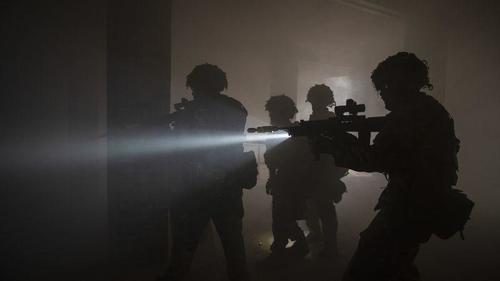Source: Zero Hedge
With the door closing on the Biden administration’s botched evacuation in Afghanistan – thanks to their botched withdrawal, hundreds of Afghan allies who worked with Western forces were destined to become ‘dead men walking’ at the hands of the Taliban.
That is, until an all-volunteer group of American badasses conducted a week-long mission on the streets of Kabul, under the cover of darkness, which resulted in the rescue of more than 600 people.
Comprised of American veterans and ad hoc groups of current and former US special operators, intelligence officers, aid workers and others experienced in the field, “Operation Pineapple Express” was a highly-coordinated week-long effort to run dozens of covert missions throughout Taliban-controlled Kabul.
One of member of “Task Force Pineapple,” combat-wounded former Navy Seal Jason Redman, expressed deep frustration “that our own government didn’t do this. We did what we should do, as Americans.”
As of Thursday morning, the task force had rescued as many as 500 Afghan special operators, assets, enablers and their families – taking them to the Kabul airport overnight and placing them into the protective custody of the US military. In the 10 days leading up to Wednesday night’s covert blitzkrieg, more than 130 other Afghans had been rescued.
The mission, led by retired Green Beret commander Col. Scott Mann, was coordinated in an encrypted chat room On Wednesday, over 50 people were online to conduct dozens of covert missions which Mann described as a night filled with “Jason Bourne”-type scenes every 10 minutes.
The small groups of Afghans repeatedly encountered Taliban foot soldiers who they said beat them but never checked identity papers that might have revealed them as operators who spent two decades killing Taliban leadership. All carried U.S. visas, pending visa applications or new applications prepared by members of Task Force Pineapple, they told ABC News.
…
With the uniformed U.S. military unable to venture outside the airport’s perimeter to collect Americans and Afghans who’ve sought U.S. protection for their past joint service, they instead provided overwatch and awaited coordinated movements by an informal Pineapple Express ground team that included “conductors” led by former Green Beret Capt. Zac Lois, known as the underground railroad’s “engineer.”
The Afghan operators, assets, interpreters and their families were known as “passengers” and they were being guided remotely by “shepherds,” who are, in most cases their loyal former U.S. special operations forces and CIA comrades and commanders, according to chat room communications viewed by ABC News.
“This Herculean effort couldn’t have been done without the unofficial heroes inside the airfield who defied their orders to not help beyond the airport perimeter, by wading into sewage canals and pulling in these targeted people who were flashing pineapples on their phones,” said Mann.
The effort began with a mission to rescue one former Afghan commando who had served with Mann, and was being hunted by the Taliban who were texting him death threats. They knew he’d worked with US Special Forces and the elite SEAL Team Six for roughly 12 years – targeting Taliban leadership, and was a high-value target. The man says he narrowly escaped from a tiny outpost in northern Afghanistan which was later overrun while waiting for approval on his US visa. The mission quickly expanded into an ‘underground railroad’ effort to shuttle as many US allies as possible to the airport and get them out of the country.
At one point, Operation Pineapple Express lost communications – only to find out that the US military had employed phone jammers to counter an IED threat at the Kabul airport.
Before the deadly ISIS-K bombing on Thursday near the Abbey Gate of the airport known as HKIA, intelligence warnings were issued about possible improvised explosive device attacks by ISIS-K. Around 8 p.m. EST Wednesday, the shepherds reported in the chatroom, which was viewed by ABC News, one by one that their passenger groups maneuvering discreetly in the darkness toward rally points had suddenly gone dark and were unreachable on their cell phones.
“We have lost comms with several of our teams,” texted Jason Redman, a combat-wounded former Navy SEAL and author, who was shepherding Afghans he knew.
There was concern the Taliban had dropped the cell towers — but another Task Force Pineapple member, a Green Beret, reported that he learned the U.S. military had employed cell phone jammers to counter the IED threat at Abbey gate. Within an hour, most had reestablished communications with the “passengers” and the slow, deliberate movements of each group resumed under the ticking clock of sunrise in Kabul, ABC News observed in the encrypted chat. -ABC News
“The whole night was a roller-coaster ride. People were so terrified in that chaotic environment. These people were so exhausted, I kept trying to put myself in their shoes,” said Redman.
Read the rest of the report here.




